CONVENING FOR ACTION AT THE WATER IN THE CITY CONFERENCE: “It is important to manage expectations when embarking on this journey towards water sustainability,” stated Eric Bonham when he addressed the consultation workshop (September 2006)
Note to Reader:
Commencing with a workshop event in the cross-Canada Rainwater Harvesting Workshop Series in June 2005, a series of partnership-building events was organized on Vancouver Island over a 16-month period. The unifying theme for the series was water sustainability and/or a water-centric approach to community development. This awareness-raising process culminated with the inaugural CAVI-Convening for Action on Vancouver Island consultation workshop in September 2006. It was held as an adjunct event to the Water in the City Conference, held in Victoria.


How it Started: Meeting of the Minds Series
 Building on the overwhelmingly positive response to the Rainwater Harvesting Workshop in Victoria, two Meeting of the Minds workshops were held in September 2005 and May 2006, both times in Parksville.
Building on the overwhelmingly positive response to the Rainwater Harvesting Workshop in Victoria, two Meeting of the Minds workshops were held in September 2005 and May 2006, both times in Parksville.
According to Eric Bonham (of the BC Water & Waste Association), who was a driving force in organizing Meeting of the Minds:
“Both times these events brought together approximately 35 participants from a range of agencies which have a water and/or wastewater focus. Both events were by invitation because we were proactively seeking the participation of individuals who are committed to action. The goal in convening was to build an effective long-term communications network.”

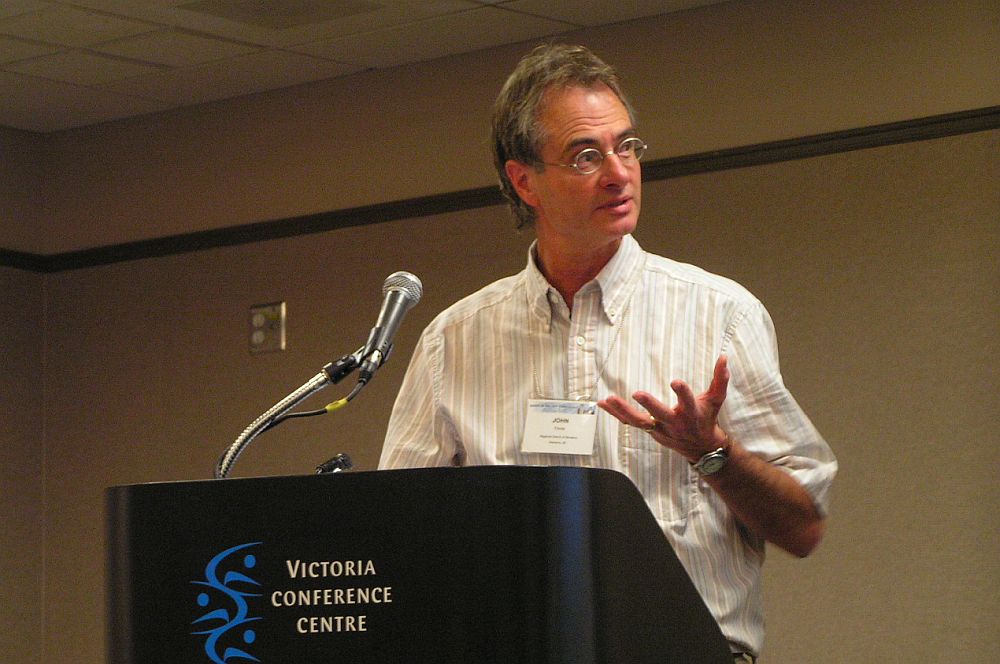
Convening for Action on Vancouver Island
The Meeting of the Minds initiative subsequently evolved into Convening for Action on Vancouver Island. “CAVI is the short-form branding that has been adopted for this convening for action initiative,” noted John Finnie (Regional District of Nanaimo), Chair of the CAVI Leadership Team.
“It is one of three regional pilots, with the other two being in the South Okanagan and Greater Vancouver.”
Under the umbrella of the over-arching Convening for Action in British Columbia program, the CAVI team organized the consultation workshop as an adjunct to the Water in the City Conference, held in Victoria in September 2006. Participation was by invitation.
Titled Towards Water Sustainability on Vancouver Island, the workshop was organized in collaboration with the BCWWA Water Sustainability Committee, the Green Infrastructure Partnership of British Columbia, and the Real Estate Foundation of British Columbia.
Towards Water Sustainability
Eric Bonham opened the workshop by posing the question: “How will Vancouver Island accommodate a doubling of the population and what will the Island look like then? This question set the tone for the discussion that followed.
According to Bonham, “The point I was making is that we have it in our hands to create our future, because what we do on the ground sets the pattern of development for generations. Also, change in standard practices does not happen overnight. It takes time. Therefore, it is important to manage expectations when embarking on this journey towards water sustainability.”
Design with Nature
K im Stephens, Program Coordinator, followed with a brief overview of the Water Sustainability Action Plan. He introduced the Convening for Action process and the three regional pilots. “The goal is to educate stakeholders on how to implement a Design with Nature approach to community development”, stated Stephens, “Because how we develop land determines how we use water and how water runs off the land.”
im Stephens, Program Coordinator, followed with a brief overview of the Water Sustainability Action Plan. He introduced the Convening for Action process and the three regional pilots. “The goal is to educate stakeholders on how to implement a Design with Nature approach to community development”, stated Stephens, “Because how we develop land determines how we use water and how water runs off the land.”
To Learn More:
To download a copy of the PowerPoint presentation that provided workshop participants with focus, please click on this link to Towards Water Sustainability.
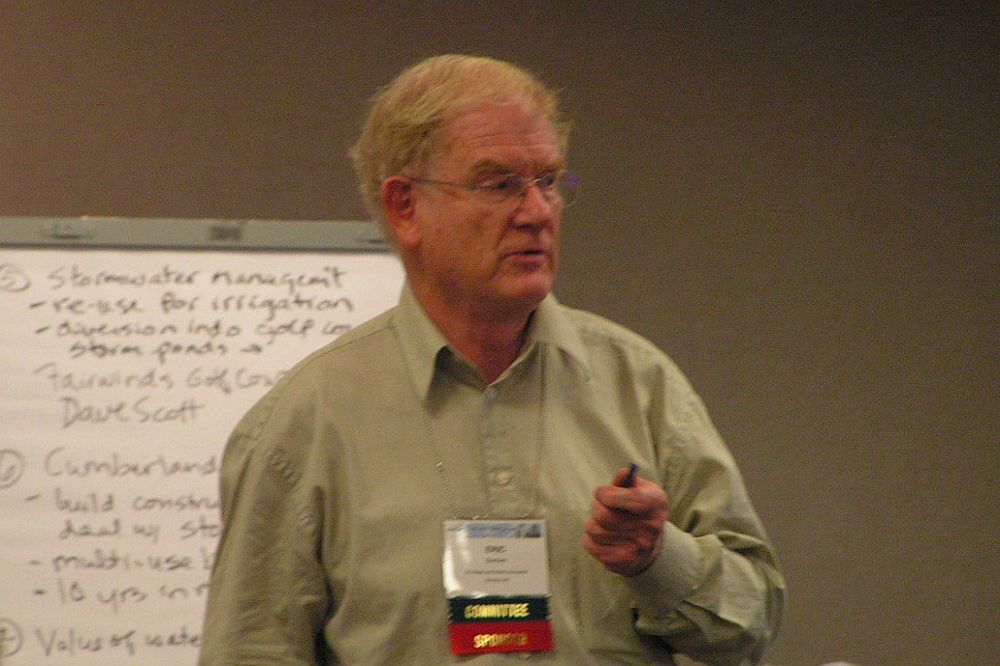






Water in the City Workshop: Overview and Outcome
The consultation workshop in September 2006 provided a timely opportunity to test and validate an approach that can bridge the gap between talk (interest) and action (practice). At the workshop, the organizing committee articulated three desired outcomes. From the long-term to the immediate, they are:
- By 2010, be well on the way to achieving water sustainability on Vancouver Island.
- As a regional pilot program for Convening for Action in British Columbia, and as a program deliverable, develop a voluntary framework that could be adapted province-wide by local governments and environmental agencies for recognizing innovation and facilitating water-centric land development approvals.
- Take the first step in the process to coalesce a broad-based coalition of stakeholders under the banner of Convening for Action on Vancouver Island.
The consultation workshop generated early momentum and has resulted in the launching of CAVI as a regional partnership. According to John Finnie, “CAVI will integrate with other groups on Vancouver Island, and will encourage the introduction of a ‘design with nature’ way of thinking into local government decision processes. Further, CAVI will play a leadership role in evolving a framework for water-centric planning that is keyed to managing risk and learning by doing. The emphasis will be on bringing together local government and the development community.”


Workshop Design: Seek to Understand
The workshop was held on a Sunday afternoon as a pre-conference event at Water in the City. Over 50 people participated in the consultation. The workshop was designed to promote conversation and interaction through an emphasis on breakout group and roundtable segments.
The program was structured around the four elements of the Convening for Action mind map for moving from talk (interest) and action (practice):
- What is an example of water-centric innovation in your community?
- So What are the ways we inform, inspire and enable people to work together through partnerships to act now?
- Now What would a water-centric framework look like in order to provide certainty and reward innovation? (Any time a land use decision is made, it creates a legacy.)
- Then What will be involved in moving from concept to policy to implementation?
Invitees were provided with a handout package in advance of the workshop so that they could think about these questions and be prepared to participate in a conversation.
To Learn More:
To download a copy of the program, click on this link to the Program Outline.
To download a copy of the handout, click on this link to the Workshop Handout Package.

Roundtable Sharing
John Finnie then provided a definition of ‘water-centric planning’ to the roundtable sharing session with a frame-of-reference. Finnie recalls that “We wanted to engage our audience as quickly as possible. So we limited the time that we spent talking at them. After a brief warm-up, we got down to business by asking participants to provide us with examples of what we termed ‘water-centric innovation’. We wanted to know who is doing what, and what has worked or not.”



Cori Barraclough (Nature’s Revenue Streams) facilitated the roundtable sharing session. She was assisted by Susan Rutherford (West Coast Environmental Law Foundation) and Meggin Messenger (Ministry of Community Services), both of whom are on the Steering Committee for the Green Infrastructure Partnership. The roundtable generated a long-list of ideas for followup action.
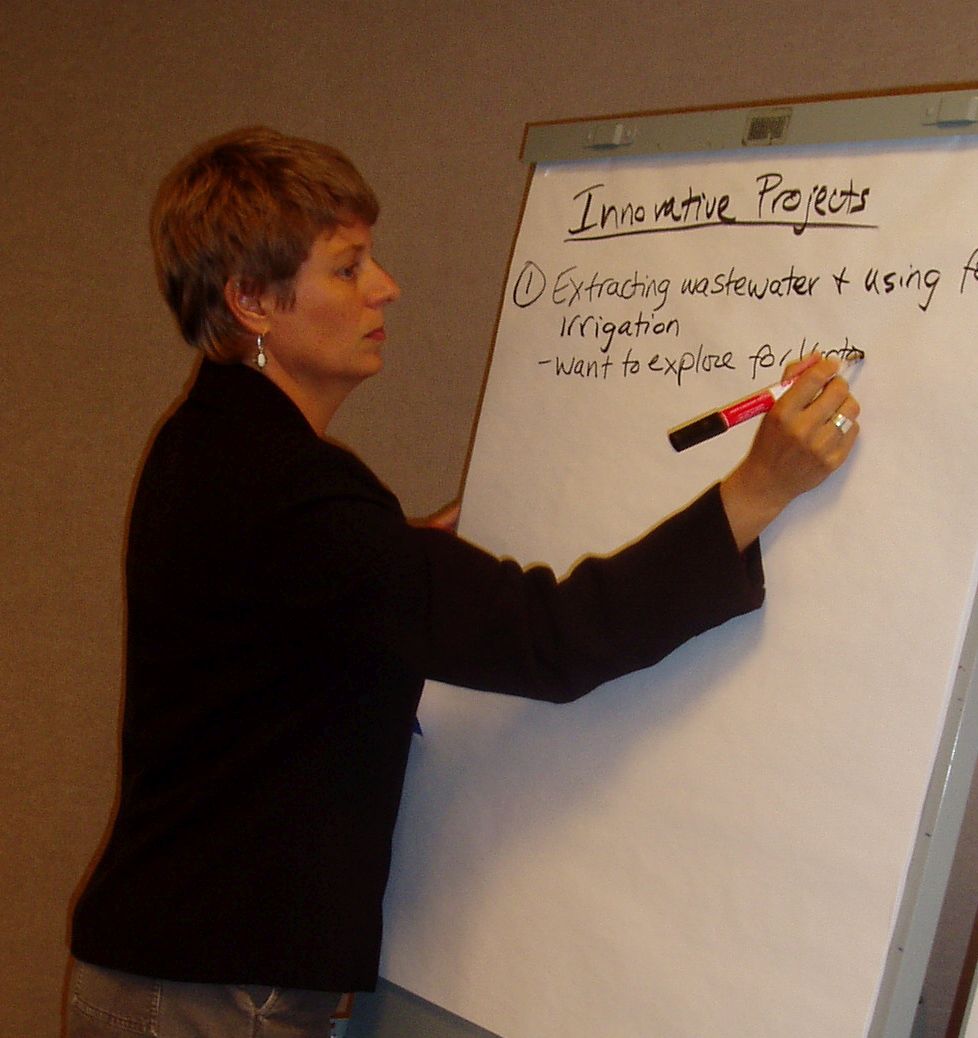

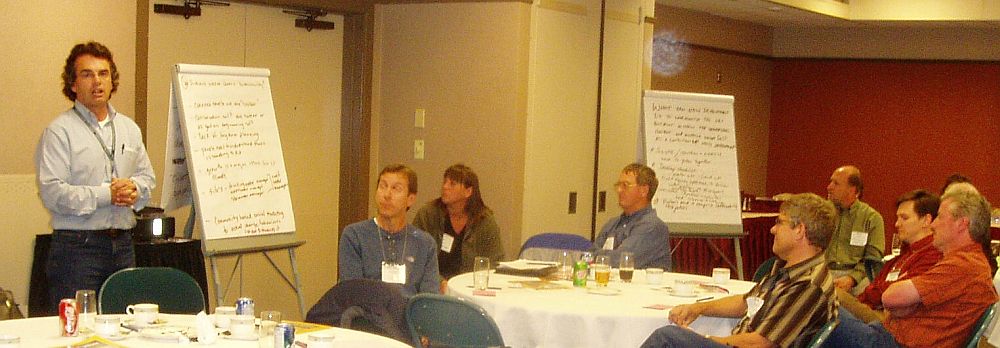
Breakout Groups
After the roundtable warm-up, participants were divided into breakout groups to brainstorm three questions:
- What can Vancouver Island communities do better or differently to achieve water-centric sustainability?
- What can new developments on Vancouver Island do to integrate and harmonize the development footprint within the watershed context and achieve water sustainability as a condition of land development approval?
- How could local governments implement a water-centric framework to reward innovation?
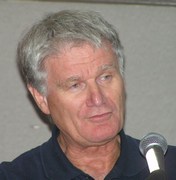 To provide the breakout groups with context for their brainstorming, Erik Karlsen addressed this question: “SO WHAT are the ways we inform, inspire and enable people to work together through partnerships to ACT NOW?” In addition, he introduced possible elements of a water-centric framework for land development approvals. He provided workshop participants with this mind map:
To provide the breakout groups with context for their brainstorming, Erik Karlsen addressed this question: “SO WHAT are the ways we inform, inspire and enable people to work together through partnerships to ACT NOW?” In addition, he introduced possible elements of a water-centric framework for land development approvals. He provided workshop participants with this mind map:
- What are the conditions that create the need for change?
- So what are the options and the best choice?
- Now what are the strategies and commitments?
- Then what will be done to monitor performance and respond to future changes?
“To get the discussion going, we reminded the audience of the principle that ‘time is money’. A burning issue is that green developers who are innovative tend to be penalized because of delays that result from deviating from traditional engineering standards. So, we wanted participants to visualize what a water-centric framework would look like to provide the innovators with certainty and reward their innovation,” stated Kim Stephens.
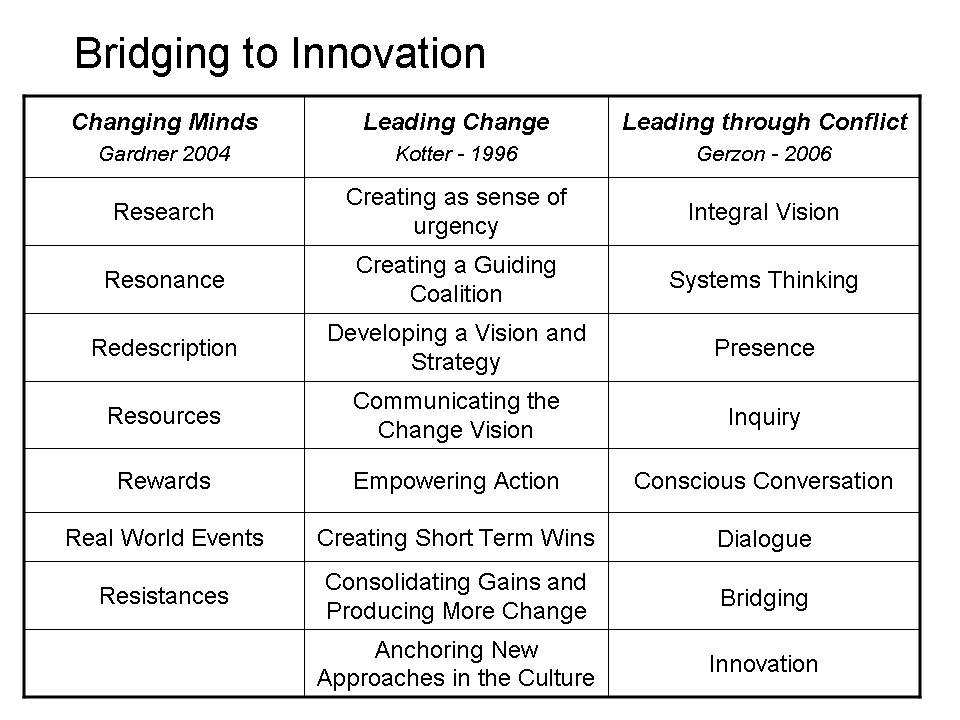
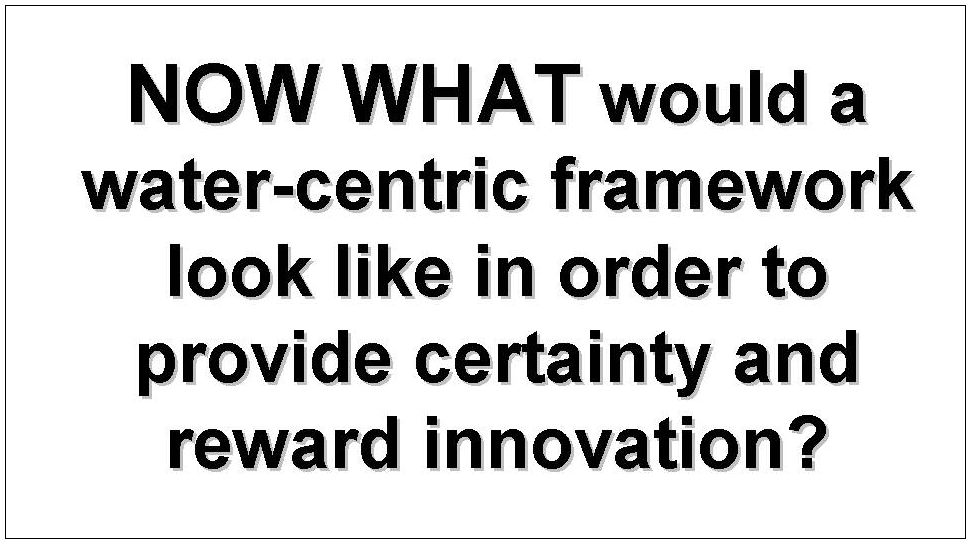
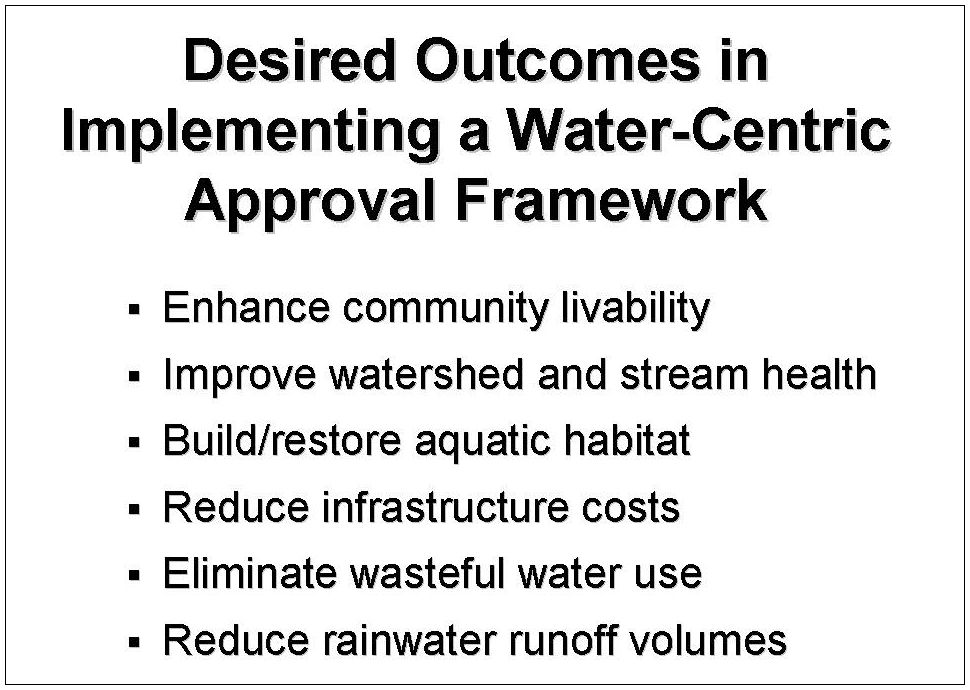

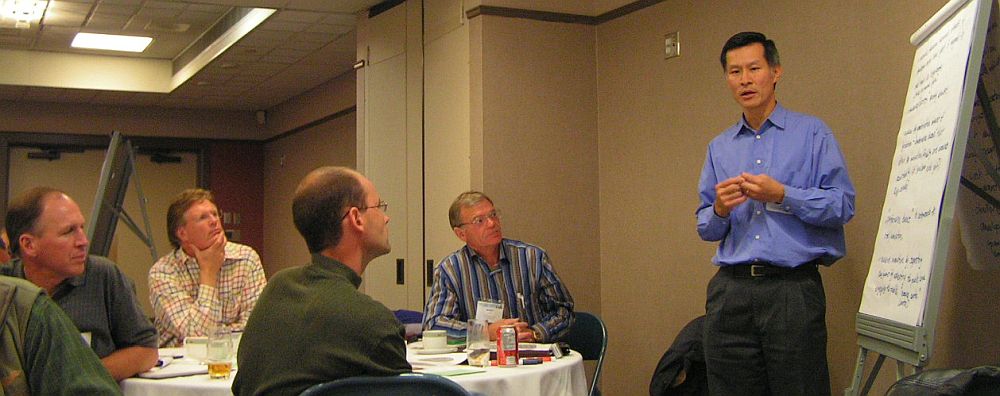

Looking Ahead
After the breakout groups reported out in a plenary session, John Finnie closed the workshop with a look ahead: “This first workshop has served a useful purpose in getting the ball rolling for a Vancouver Island pilot program. It is the first step in an educational and consultative process. ‘Towards Water Sustainability’ is now formally launched. The next step of the organizing committee is to design a workshop for local government, sometime in 2007. The spotlight is on local government because implementing new practices will need clearly defined standards and regulatory models. Also, willing municipalities will be invited to pool resources under a partnership framework.”

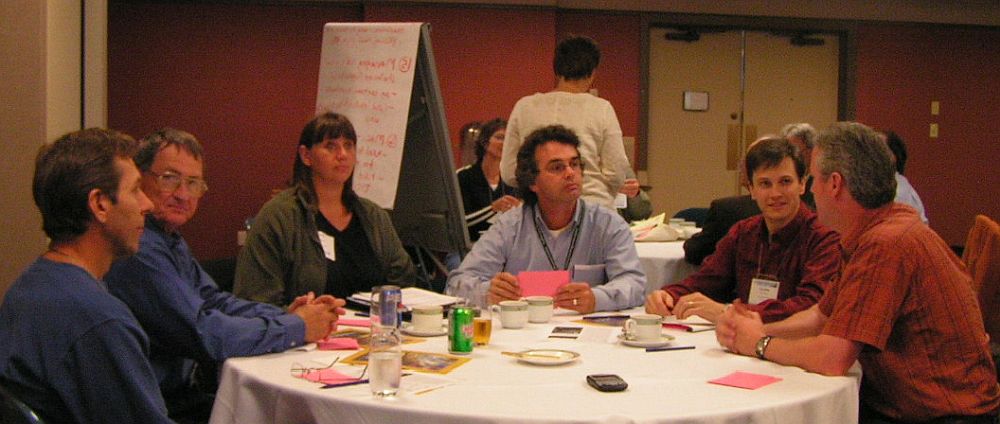
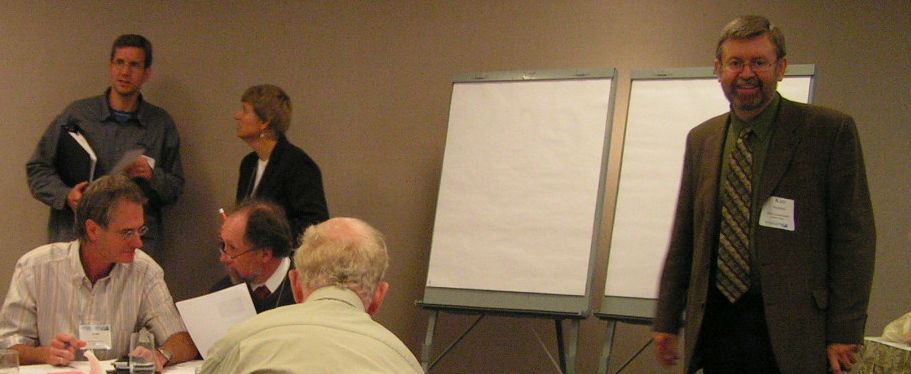
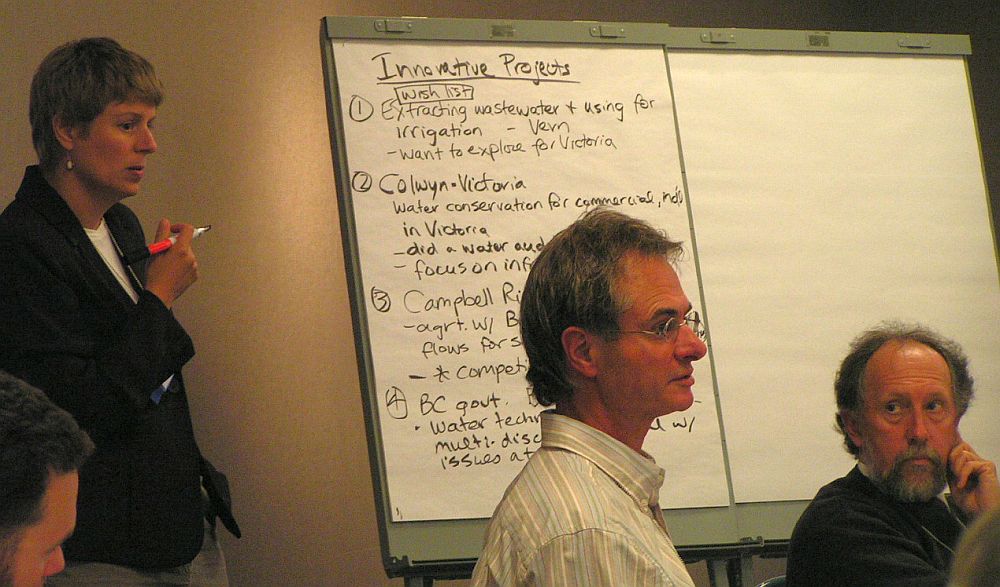


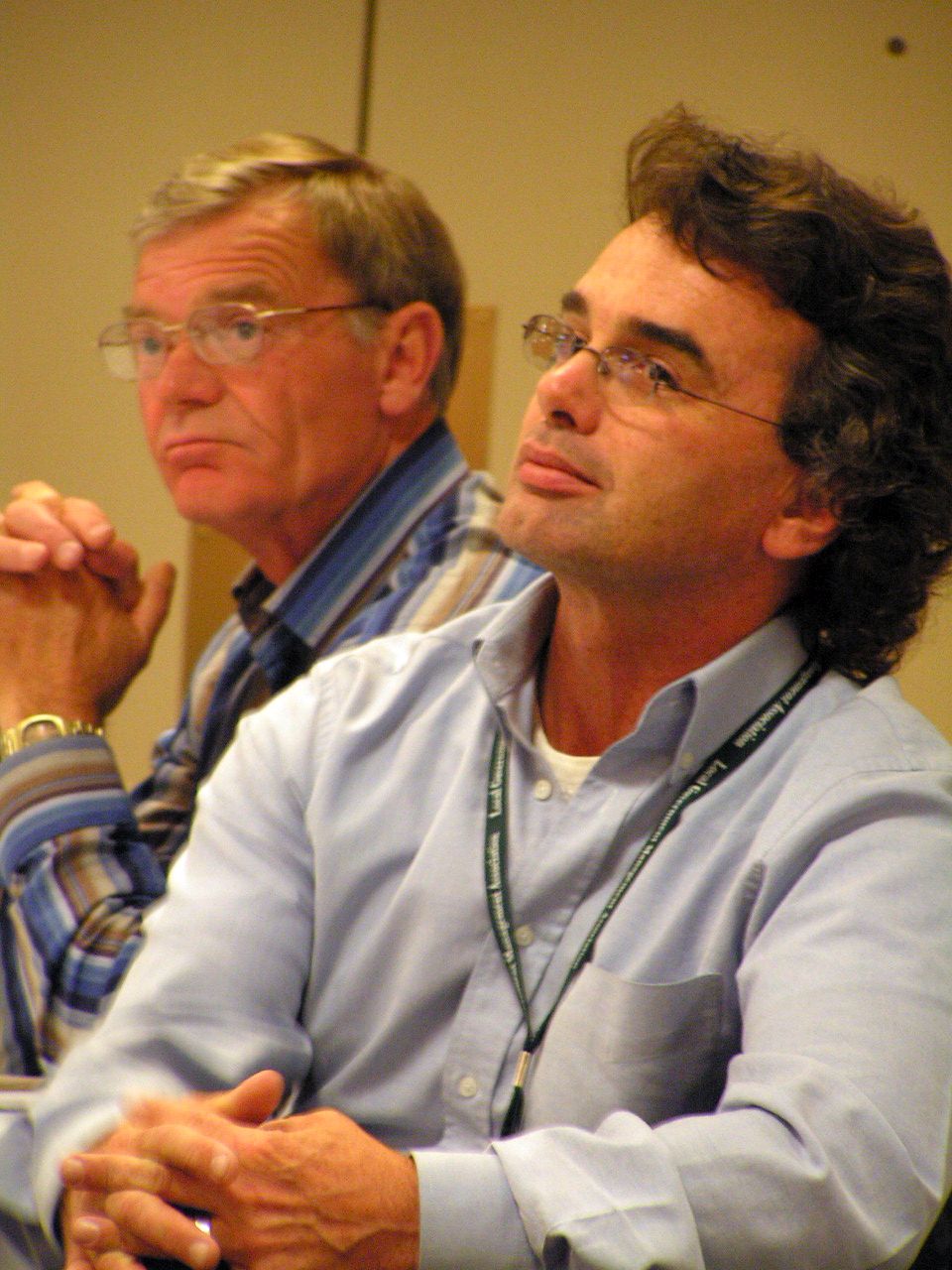



Posted February 2007

